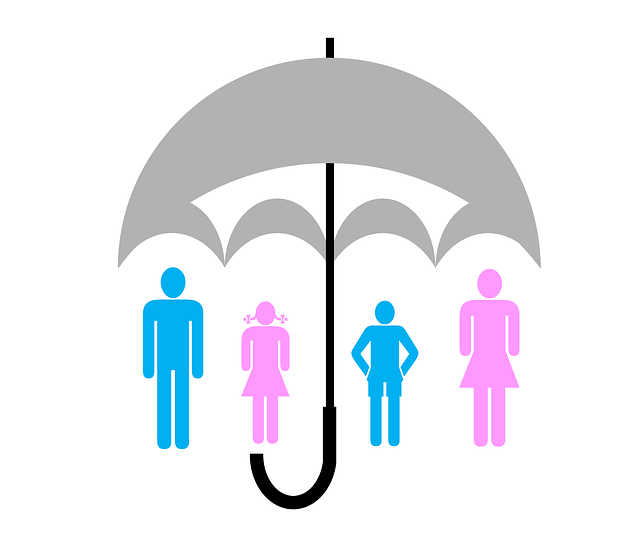Commercial insurance is a vital tool for businesses, offering financial protection against diverse risks from property damage to legal disputes. A well-structured plan includes property, liability, and business interruption coverage, enabling stability during unforeseen events. Assessing business needs through risk assessment guides policy selection, ensuring tailored protection. Key components like liability, property, and business interruption coverage safeguard against various risks. Specialized policies cater to industry-specific hazards, leveraging technology for enhanced risk management. Choosing an insurance provider requires evaluating expertise, financial stability, and customer reviews. Understanding the claims process is crucial for prompt resolution. Cost comparison and annual policy renewals ensure optimal protection at competitive rates, while staying informed about emerging trends ensures tailored coverage for evolving business risks.
Commercial insurance is a vital shield for businesses, offering protection against unpredictable risks. This comprehensive guide delves into the intricacies of commercial insurance plans, equipping business owners with essential knowledge. We explore various types of policies, from general liability to property coverage, ensuring every aspect is covered. Understanding risk assessment and key plan components is crucial for informed decision-making. Learn how to select the best provider, navigate claims processes, and stay updated on industry trends, empowering you to make strategic choices for your business’s security.
Understanding Commercial Insurance: A Comprehensive Overview

Commercial insurance is a crucial aspect of managing and protecting any business venture. It provides financial protection against potential risks and liabilities that can arise in the course of commercial activities. By understanding the intricacies of this type of insurance, business owners can make informed decisions to safeguard their investments.
A comprehensive commercial insurance plan typically covers various aspects, including property damage, liability for personal injuries or property loss, and business interruption. It ensures that a company is prepared for unforeseen events such as natural disasters, accidents, or legal disputes. With the right coverage, businesses can maintain stability and continue operations without significant financial setbacks.
Types of Commercial Insurance Policies

Commercial insurance is a vital component for any business, offering protection against various risks and potential losses. The market provides several types of policies tailored to meet diverse commercial needs. One common category includes property insurance, which safeguards businesses from physical damage or theft of their assets, be it a small retail store or an industrial complex. This coverage can extend to include loss of income due to unforeseen events, ensuring business continuity.
Liability insurance is another crucial aspect, shielding businesses from financial claims arising from accidents, injuries, or property damage on their premises. Professional liability, also known as errors and omissions insurance, protects against legal issues related to professional services. Moreover, commercial vehicles require specific coverage for liabilities associated with transportation, while workers’ compensation insurance is essential for safeguarding employees and businesses from workplace-related injuries or illnesses.
Assessing Your Business Needs: Risk Assessment

When it comes to commercial insurance, Assessing Your Business Needs is a crucial initial step. This involves conducting a thorough risk assessment to identify potential hazards and perils that could impact your business operations. Consider factors such as the nature of your industry, location, assets, liability exposure, and any unique risks specific to your operations. For instance, if you operate a construction company, you’ll want to assess worker’s compensation risks, while an e-commerce business should consider data breach and cyber liability.
A comprehensive risk assessment will help determine the types of commercial insurance policies necessary to mitigate these risks effectively. This may include general liability insurance to cover accidents or property damage on your premises, professional liability protection for negligence claims, or specialized coverage for valuable assets like machinery or intellectual property. By understanding your business’s unique risks, you can tailor an insurance plan that provides adequate financial security and peace of mind.
Key Components of a Commercial Insurance Plan

Commercial insurance plans are tailored to protect businesses from various risks and financial losses. The key components typically include liability coverage, which shields against claims and lawsuits related to bodily injury or property damage caused to others. This is essential for any business that could face legal repercussions and high compensation costs.
Additionally, commercial plans often feature property insurance, designed to safeguard physical assets like buildings, equipment, and inventory from perils such as fire, theft, or natural disasters. Business interruption coverage is another critical element, offering financial support during unforeseen events that halt operations, ensuring the company can recover and resume activities promptly.
Common Coverage Areas and Exclusions

Commercial insurance plans typically cover a wide range of risks that businesses face in their day-to-day operations. Common coverage areas include property damage, liability for injuries or property loss, and business interruption due to unforeseen events like natural disasters or cyberattacks. These policies also often cover professional errors and omissions, providing protection against claims related to negligence or mistakes in service provision.
However, it’s crucial to note that commercial insurance plans have specific exclusions. These may include damages caused by war or terrorism, certain types of environmental hazards, or willful acts of the insured. Additionally, some policies might exclude coverage for specific industries with unique risks, such as high-hazard operations or those involving large sums of cash. Understanding these coverage areas and exclusions is essential for businesses to ensure they are adequately protected and aware of limitations in their policy.
How to Choose the Right Insurance Provider

When choosing a commercial insurance provider, start by evaluating their expertise and experience in your industry. Different sectors have unique risks and requirements, so it’s essential to find an insurer specialised in your field. Look for companies that offer tailored policies for small businesses, large corporations, or specific industries like healthcare or construction. This specialisation ensures they understand the nuances of your business and can provide appropriate coverage.
Additionally, consider their financial stability and customer reviews. Research the provider’s reputation by checking industry rankings and client feedback. A reliable insurance company should have a solid track record, stable financial health, and positive testimonials from satisfied customers. Verify their claims-handling process, response times, and overall customer service to ensure they meet your expectations.
Claims Process: What You Need to Know

When it comes to commercial insurance, understanding the claims process is crucial for business owners. The first step in this process typically involves reporting a loss or incident to your insurance provider as soon as possible. This can be done through various methods, including phone calls, online portals, or even mobile apps, ensuring quick and efficient communication. It’s important to have all relevant details ready, such as the date, time, location, and nature of the incident, along with any supporting documents or evidence.
After reporting a claim, your insurance provider will assign an adjuster who will investigate the circumstances surrounding the loss. They will gather information, assess damages, and determine the validity of the claim. This step is critical as it ensures that both parties have a clear understanding of what transpired. Once the adjuster completes their assessment, they will provide you with a quote or estimate for the repairs or compensation, following which you can either accept or dispute the offer, ensuring your business’s interests are protected throughout the claims process.
Cost Considerations and Policy Renewal

When evaluating commercial insurance plans, cost considerations are paramount. Premiums can vary widely based on factors such as the type and size of your business, risk profile, location, and specific coverage needs. It’s crucial to compare quotes from multiple providers to ensure you’re getting the best value for your dollar. Beyond initial costs, understanding renewal processes is essential. Many commercial insurance policies renew annually, requiring reassessment of your risk profile and potential changes in coverage to align with evolving business needs. Regularly reviewing and updating your policy can help mitigate unexpected expenses and ensure continuous protection.
Staying Updated: Trends in Commercial Insurance

The landscape of commercial insurance is constantly evolving, with new trends and developments emerging regularly. Staying updated on these changes is crucial for businesses to ensure they have adequate coverage and are prepared for potential risks. One significant trend in commercial insurance is the shift towards more specialized policies tailored to specific industries. This allows insurers to offer customized solutions that address industry-specific risks, such as cyber threats, data breaches, and supply chain disruptions.
Additionally, there’s a growing emphasis on risk management and prevention. Commercial insurance providers are incorporating advanced analytics and technology to assess risks more accurately and provide proactive risk mitigation strategies. This includes the use of Internet of Things (IoT) devices for real-time monitoring, predictive modeling, and automated claims processing, making commercial insurance plans more efficient and effective.
